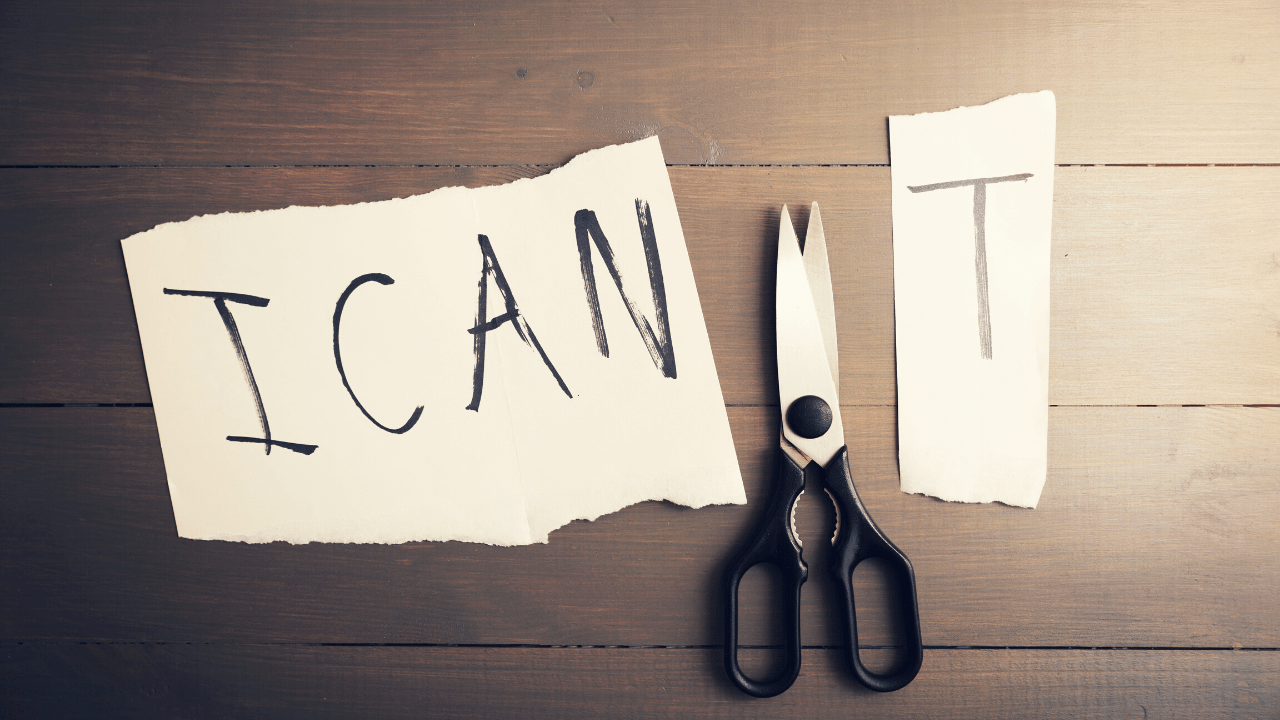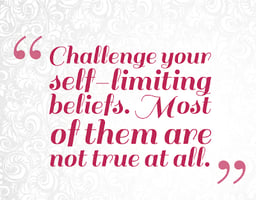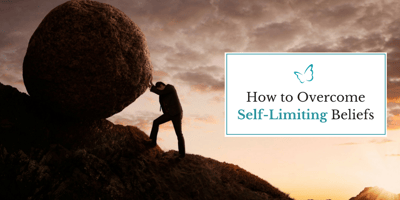Unlocking Your Potential: The Power of Expanding Your Beliefs
The Impact of Limiting Beliefs & How to Overcome Them
How to Overcome Limiting Beliefs
What are Limiting Beliefs?
Limiting beliefs are negative thoughts or ideas that we hold about ourselves, others, or the world around us. These beliefs can hold us back from reaching our full potential and achieving our goals. They are often formed in childhood and can be reinforced by experiences throughout our lives. Some common limiting beliefs include: "I'm not good enough," "I'll never be successful," and "I don't deserve to be happy."
It's important to recognize our limiting beliefs so that we can begin to challenge and overcome them. Without this awareness, we may continue to hold ourselves back without even realizing it.
To identify your limiting beliefs, take some time to reflect on your thoughts and feelings. What negative ideas do you have about yourself or your abilities? When do these thoughts tend to arise? Once you have a better understanding of your limiting beliefs, you can begin to work on overcoming them.
Understand the Impact of Limiting Beliefs
Limiting beliefs can have a significant impact on our lives. They can prevent us from taking risks, pursuing our passions, and achieving our goals. When we believe that we are not capable or deserving of success, we may avoid challenging ourselves and settle for less than we truly want.
One of the biggest negative impacts of limiting beliefs is that they can create a self-fulfilling prophecy. When we believe that we cannot achieve something, we are less likely to take the necessary actions to make it happen. For example, if we believe that we are not good enough to succeed in our careers, we may stop trying to improve our skills or look for new opportunities. This can lead to stagnation and a lack of fulfillment in our lives.
Limiting beliefs can also lead to a negative mindset, which can have a ripple effect on our lives. When we focus on our limitations, we are less likely to see the opportunities and possibilities around us. This can lead to feelings of hopelessness and despair, which can make it even harder to break free from our limiting beliefs.
Another negative impact of limiting beliefs is that they can create a sense of fear and anxiety. When we believe that we are not capable of achieving something, we may avoid taking risks or trying new things. This can lead to a sense of stagnation and a lack of growth in our lives.
Limiting beliefs can also affect our relationships with others. If we believe we are unworthy of love or that others will always disappoint us, we may struggle to form meaningful connections with those around us.
It's important to understand the impact of limiting beliefs so that we can begin to challenge them and create a fulfilling life for ourselves.
Challenge Your Limiting Beliefs
The first step in overcoming limiting beliefs is to challenge them. Ask yourself: is this belief really true? Is there any evidence to support it? Often, we hold onto limiting beliefs without questioning their validity.
Next, try to reframe the more positive light. For example, if you believe that you are not good enough, try to focus on your strengths and accomplishments. Remind yourself of times when you have succeeded or received praise.
Finally, practice self-compassion. Remember that everyone has flaws and makes mistakes. Don't be too hard on yourself for having limiting beliefs, and instead, focus on making progress towards overcoming them.
Build Self-Esteem
Low self-esteem can often contribute to limiting beliefs. If you don't believe in yourself, it's easy to fall into negative thought patterns and hold yourself back from reaching your full potential.
To build self-esteem, focus on your strengths and accomplishments. Take time each day to think about what you are proud of and what you have achieved. Practice positive self-talk and avoid negative self-criticism.
It may also be helpful to surround yourself with positive and supportive people who believe in you and your abilities.
Practice Mindfulness
Mindfulness can be a powerful tool in overcoming limiting beliefs. When we are mindful, we are more aware of our thoughts and emotions and can begin to question and challenge negative beliefs.
Try incorporating mindfulness into your daily routine. This can be as simple as taking a few minutes each day to focus on your breath or going for a walk in nature and being present in the moment.
As you practice mindfulness, you may begin to notice negative thought patterns and limiting beliefs. Use this awareness to challenge these beliefs and reframe them in a more positive light.
Take Action
Overcoming limiting beliefs requires action. It's not enough to simply recognize and challenge these beliefs – we must also take steps to create the life we want.
Begin by setting goals for yourself. Identify what you want to achieve and create a plan for how you will get there. Break your goals down into small, manageable steps to make them more achievable.
As you take action toward your goals, you may find that your limiting beliefs begin to fade away. Celebrate your successes and use them as motivation to keep moving forward.
Embrace Failure
Many of our limiting beliefs are rooted in a fear of failure. We may believe that we are not capable of success or that failure would be too painful to bear.
To overcome this fear, it's important to embrace failure as a natural part of the learning process. Recognize that failure is not a reflection of your worth as a person but simply an opportunity to learn and grow.
When you experience failure, take time to reflect on what you can learn from the experience. Use this knowledge to make adjustments and try again.
Practice Gratitude
Gratitude can be a powerful antidote to limiting beliefs. When we focus on what we are grateful for, we shift our attention away from negative thoughts and toward the positive aspects of our lives.
Try incorporating a gratitude practice into your daily routine. This can be as simple as writing down three things you are grateful for each. As you focus on the good in your life, you may find that your limiting beliefs begin to lose their power.
Seek Support
Overcoming limiting beliefs can be a challenging process, and it's okay to ask for help along the way.
Consider seeking support from a therapist, coach, friend or family member. Talking through your beliefs and feelings with someone else can provide valuable perspective and help you to develop new strategies for overcoming your limiting beliefs.
Keep Going
Overcoming limiting beliefs is not a quick or easy process. It requires dedication, patience, and perseverance. But with time and effort, it is possible to create a more fulfilling and meaningful life.

Key Steps to Conquering Limiting Beliefs
Limiting beliefs are beliefs that hold us back from achieving our full potential. These beliefs are often deeply ingrained in our subconscious and can be difficult to overcome. However, there are several effective ways to overcome limiting beliefs, including:
-
Identify the limiting belief: The first step in overcoming a limiting belief is to identify it. Pay attention to your thoughts and feelings and notice when you are thinking in a negative or limiting way.
-
Question the belief: Once you have identified the limiting belief, question it. Ask yourself if it is really true and if there is any evidence to support it. Often, limiting beliefs are based on assumptions or past experiences that are no longer relevant.
-
Challenge the belief: Once you have questioned the belief, challenge it. Look for evidence that contradicts the belief and focus on that instead. For example, if you have a limiting belief that you are not good enough to succeed in a particular area, look for evidence of times when you have succeeded in other areas.
-
Reframe the belief: Once you have challenged the belief, reframe it in a more positive way. For example, instead of thinking, "I'm not good enough," reframe it as "I'm capable of learning and improving."
-
Take action: Finally, take action to reinforce your new belief. Set goals that are aligned with your new belief and take steps towards achieving them. Each time you take action towards your goal, you are reinforcing your new belief and breaking down the old, limiting one.
Overall, overcoming limiting beliefs takes time and effort, but it is possible with consistent practice and a willingness to challenge and reframe your thoughts.
Remember to be kind to yourself as you work through your limiting beliefs, and celebrate your successes along the way. Keep going, even when it feels difficult, and trust that you are capable of creating the life you want.






